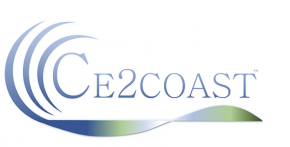Global change from anthropogenic forcing will have significant impacts at regional and coastal scales on marine systems and dependent socioeconomic systems and ecosystem services and can strongly interact with regional/local drivers such as fishing, pollution, and eutrophication. A capacity to understand and predict these impacts on regional seas and coasts is essential for developing robust strategies for adaptation and mitigation and therefore for the EU’s fulfilment of UN SDGs 13 and 14 but also 2, 6,8, 9, 11, 12, since regional seas and coastal areas support food production, water quality, and industrial/economic activities such as fisheries and aquaculture). Projections of climate and ocean change have been delivered at global or basin scales using Global Climate or Earth System Models (ESMs). However, such models are not able to provide the necessary resolution of physical processes that determine fluxes of carbon, nutrients, heat, and light which in turn control the growth response of the marine food web and thereby ecosystem services such as food supply to fisheries/aquaculture, water quality control, and carbon sequestration. Another limitation of ESMs is that the representation of the marine food web tends to be highly simplified which in turn limits the ability to capture potential shifts in planktonic community structure and elemental stoichiometry and thereby resulting impacts/feedbacks on services.
CE2COAST is the coordinated assemblage and analysis of observational and modelling data to deliver state, trends and variability of pressures on ocean services resulting from ocean and coastal climate and biogeochemical change at the European and global scale. It will provide an observation-driven synthesis of statistical and dynamical downscaling methodology to provide better process resolution and system representations that are tailored to regional/coastal domains and their associated pressures/services. The proof-of-concept approach, where the sensitivity of ocean service pressure projections to scaling, will enable Europe to prioritize research efforts towards delivering crucial new science-based knowledge of high relevance for adaption, protection and investment in bioeconomies
Funded by National Funding Organisation: MIUR
Within the JPI Climate and JPI Oceans 2019 Joint Call on Next Generation Climate Science in Europe for Oceans call
General objectives:
Generate and analyse customised regional observational datasets to deliver empirical understanding of the state, variability and trends of ocean and coastal service pressures. This objective will deliver new data on oceans and climate using observations and Earth system models.
Deliver downscaled simulations of oceanic response to climate change at basin to regional/coastal scales. By synthesizing European expertise on statistical and dynamical downscaling, we will develop state-of-the-art protocols and simulations to assess oceanic responses to climate change on basin to regional/coastal scales, and we will use these simulations to assess climatic trends in mean state and statistical variability. Our models will also strengthen climate knowledge on several other ocean pressures such as warming and deoxygenation
Investigate the added value of improved downscaled projections for determining future pressure (stressor) changes relevant for key ocean services. Our novel approach focussed on strengthening aims to deliver the information required for stronger and immediate trans-national co-operation and societal transformation to mitigate and adapt to climate change, while also safeguarding and developing a sustainable marine bioeconomy. We will thus provide ‘Climate Services innovation’ in the form of a new way of exploiting observations and modelling tools to deliver climate information that gives maximal support to decision-making.
Co-produce research strategies with stakeholders and communicate new project knowledge to relevant management, regulatory, industrial and societal organisations. While the technical tasks of CE2COAST have a strong focus on the participating countries/regions, ocean-climate interaction is relevant for the entire ocean scale. It is therefore vital to bring the findings into an enhanced geographic context and involve stakeholders as early as possible on a broad geographic basis. The ongoing activities focussed on the “Decade of the Oceans” through IOC and the ATLANTIC INTERACTIONS Initiative through AIR Centre provide highly relevant platforms to achieve a powerful stakeholder involvement all across the Atlantic Ocean and beyond.
CMCC role
CMCC participates in WP2, WP3
Activities
ODA Division: CMCC leads the work package on the generation and analysis of customised regional observational datasets to deliver empirical understanding of the state, variability and trends of ocean and coastal service pressures. We will also be heavily involved in the development of the downscaling strategies to enable highly skilled regional proections of climate change and provide projections for the European Atlantic shelf and the Mediterranean Sea.
Expected results
ODA Division: Provide enhanced datasets from Earth System Model output tailored for regional applications via bias correction and statistical downscaling providing considerable added value compared to standard CMIP6 output. Target projections for European Seas from cutting edge regional model systems informing on state, trends and variability of pressures on ocean services resulting from ocean and coastal climate and biogeochemical change biogeochemical change.
Partner
2) Norwegian Research Centre AS (NORCE) – Norway
3) Université de Liège – Belgium
4) Marine Institute – Ireland
5) NUI Galway – Ireland
6) Marine and Freshwater Research Institute – Iceland
7) Fondazione Centro Euro-Mediterraneo sui Cambiamenti Climatici (CMCC) – Italy
9) Univesity of Daugavpils agency Latvian Institute of Aquatic Ecology – Latvia
10) University of Latvia – Latvia
11) IST University of Lisbon – Portugal
12) Associação para o Desenvolvimento do Atlantic International Research Centre – Portugal
13) Intergovernmental Oceanographic Commission of UNESCO
14) Institut de Recherche pour le Développement – France


